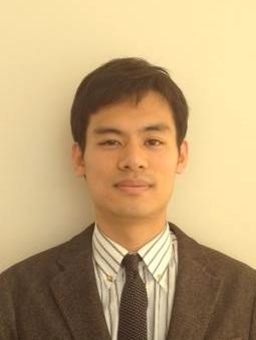

Inorganic Chemistry, Organometallic Chemistry, sigma-Acceptor Ligand

2009 Post Doctoral Fellow at Erlangen-Nuremberg University
2010 Special appointment Lecturer at Osaka City University
2013 Assistant Professor at Osaka Prefecture University
2018 Associate Professor at Osaka Prefecture University
2010 Special appointment Lecturer at Osaka City University
2013 Assistant Professor at Osaka Prefecture University
2018 Associate Professor at Osaka Prefecture University

My interests focus on the chemistry of sigma electron-acceptor (Z-type) ligands. Ligands in transition metal complexes are generally classified as Ltype, Xtype, or Ztype. Ltype ligands serve as two-electron donors for transition metals and Xtype ligands typically are considered to donate one-electron to the central metal. In comparison, Ztype ligands accept electrons from transition metals through a sigma-bonding interaction. Although this type of ligands potentially has unique functions, Ztype ligands are much less well understood than L and Xtype ligands and their functions are in early stages of investigation. We dedicate significant efforts to designing Ztype ligands for applications to develop a new catalytic process.

- Can One σ*-Antibonding Orbital Interact with Six Electrons of Lewis Bases?: Analysis of a Multiply Interacting σ*-Orbital Organometallics 2014, 33, in press.
- Recent Developments in the Coordination Chemistry of Multidentate Ligands Featuring a Boron Moiety Chem. Asian J. 2013, 8, 1720-1734.
- Synthesis of a Rhodium Complex Featuring the Rh−H−B Linkage via a Hydride Migration from Rhodium to Borane: Study on the Electronic Deviation Induced by the Presence of the Boron Moiety Organometallics 2012, 31, 7476-7484.
- Synthesis of Rhodaboratranes Bearing Phosphine-Tethered Borane: Evaluation of Metal-Borane Interaction Organometallics 2012, 31, 3155-3162.
- Structures and Reactivities of Rhodium Complexes Bearing [E(o-C6H4PPh2)3] Type Tetradentate Ligand (E = Si, Ge, Sn) Organometallics 2012, 31, 2212-2218.



























